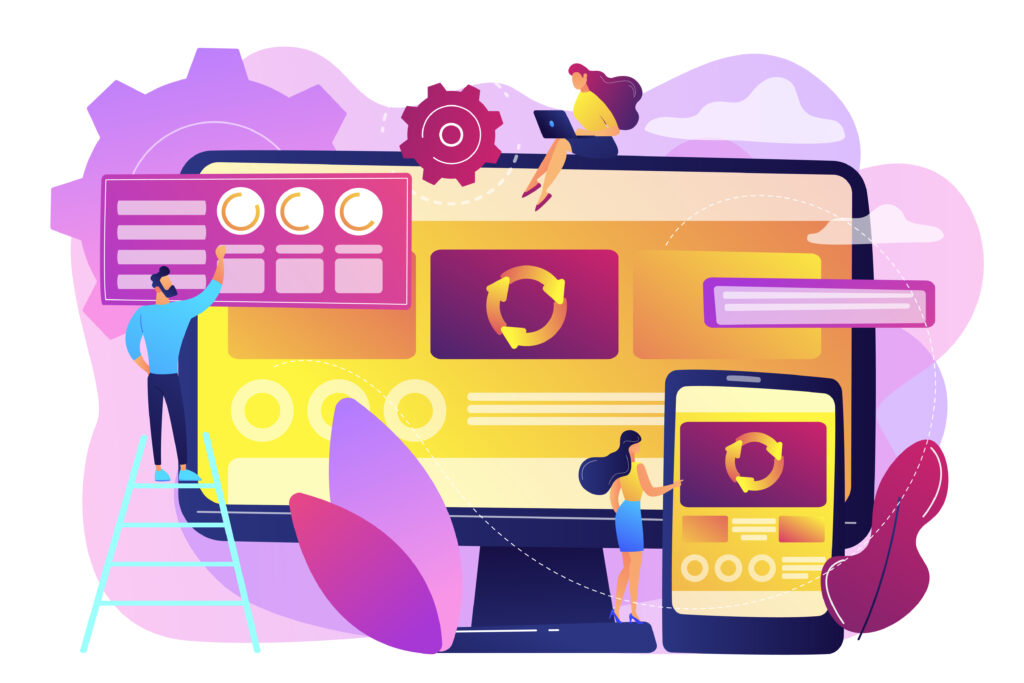What Do Strategies For Hiring a Dedicated Support Engineer Mean?
The phrase “strategies for hiring a dedicated support engineer” refers to the structured approaches and techniques that organizations employ to successfully recruit and select candidates who will deliver focused technical support. This position is essential for maintaining the seamless operation of IT systems and for ensuring that users receive prompt help with technical problems.
Strategies for Hiring a Dedicated Support Engineer
The process of hiring a dedicated support engineer (DSE) is crucial and demands meticulous planning and execution. Outlined below are comprehensive strategies that address each key aspect of this hiring journey.

1: Define Your Requirements
Defining your requirements is an essential first step in hiring a dedicated support engineer (DSE). This process ensures you attract candidates with not only the required technical expertise but also those who fit your organizational culture and objectives.
Understanding Project Needs
Skills and Experience
- Technical Skills: Specify the exact technical skills needed for the role. This may include expertise in programming languages like Python or Java, knowledge of frameworks such as React or Angular, and familiarity with tools like ticketing systems (e.g., Jira, Zendesk) and monitoring solutions (e.g., Nagios, Prometheus). Having a clear set of requirements will help you identify candidates who match your technical needs.
- Relevant Experience: Seek candidates with a proven background in similar roles or sectors. Their experience should cover not just technical skills but also an understanding of the unique challenges your organization faces. For instance, if you’re in a regulated industry, experience with compliance-related technologies could be vital.
Scope of Work
- Daily Responsibilities: Define the daily duties expected of the DSE, such as troubleshooting, system monitoring, user support, and documenting incidents and solutions. A clear list of responsibilities helps candidates understand their day-to-day tasks.
- Project Timelines and Outcomes: Establish project timelines and expected results to give candidates insight into their role’s impact within the organization. For example, if the DSE will play a role in supporting a product launch, outline the preparation timeline and post-launch support expectations.
Cultural Fit

Alignment with Company Values
- Assessing Fit: Evaluate how closely candidates align with your company’s culture and values. This can be achieved through behavioral interview questions that delve into their past experiences and decision-making processes. For instance, asking, “Describe a time when you had to adapt to a significant change at work” can provide insights into how candidates handle challenges in ways that align with your company’s values.
- Importance of Cultural Fit: Finding a good cultural fit fosters smoother collaboration and strengthens team dynamics. Candidates who connect with your values are more likely to interact positively with colleagues and contribute to a cohesive, supportive work environment.
2: Choose the Right Hiring Model
Selecting the right hiring model is crucial for balancing budgetary constraints with operational needs.

Local Hiring
- Advantages: Recruiting engineers from your own country can improve communication thanks to shared language and cultural understanding. Local hires may also align better with business hours, facilitating real-time collaboration.
- Disadvantages: On the downside, local hiring often comes with higher costs due to local salary expectations, which can put pressure on budgets, particularly for startups or smaller firms.
Nearshoring
- Definition: Nearshoring involves hiring engineers from nearby countries.
- Benefits: This approach offers a balance between cost savings and proximity, enabling easier collaboration without significant time zone issues. It can be especially beneficial if neighboring countries share similar cultural backgrounds or languages.
Offshoring
- Definition: Offshoring refers to hiring engineers from countries with lower living costs.
- Cost Benefits: Utilizing offshore talent can lead to substantial cost reductions while providing access to specialized skills that may not be available locally.
- Challenges: However, offshoring can present challenges related to time zone differences and cultural barriers, which may impact communication and project management.
3: Evaluate Technical Skills
Assessing technical skills is crucial to ensure that candidates are equipped to tackle the challenges they will encounter in their roles.

Technical Assessments
Coding Challenges
- implementation: Develop customized coding challenges or technical assessments that mirror real-world scenarios pertinent to your organization’s needs. For example, if your company utilizes specific software or systems, create assessments that involve troubleshooting issues related to those technologies.
- Evaluation Criteria: Use these assessments to evaluate candidates’ problem-solving skills, coding proficiency, and knowledge of best practices in software development or IT support.
Experience Verification
Portfolio Review
- Scrutinizing Backgrounds: Carefully examine candidates’ resumes and portfolios to verify their experience with relevant projects or technologies. Seek specific examples of past work that illustrate their capability to manage tasks pertinent to your organization.
- Reference Checks: Contact former employers for references to confirm the accuracy of claims regarding skills and work ethic. Ask focused questions about the candidate’s performance in previous roles, emphasizing areas that align with your requirements.
4: Consider Experience and Reliability
Assessing experience and reliability is essential to ensure that you choose candidates who can consistently achieve results.

Company vs. Individual Hire
Reputable Companies
- Stability Benefits: Hiring through established firms can provide stability, as these companies often have backup resources available if an engineer is unavailable due to illness or other circumstances.
- Support Structure: Companies usually have structured processes for training, performance evaluation, and quality assurance, leading to more consistent service delivery.
Freelancers
- Flexibility vs. Risk: While individual freelancers may offer greater flexibility regarding working hours and project scope, they also come with risks, such as unpredictable availability and varying degrees of commitment.
- Considerations for Freelancers: If you choose to hire freelancers, make sure to have contingency plans in place in case they become unexpectedly unavailable.
5: Assess Communication Skills
Effective communication skills are vital for successful collaboration within teams, particularly in remote work settings.

Effective Collaboration
Verbal and Written Skills
- mportance of Clarity: Candidates must exhibit strong verbal and written communication skills, which are crucial for clearly conveying ideas, providing regular progress updates, and promptly addressing issues.
- Assessment Techniques: Evaluate these skills during interviews by using situational questions that require candidates to clarify complex concepts or explain how they would handle specific scenarios related to team communication.
Cross-Cultural Communication
- Global Teams Considerations: Since many organizations function on a global scale, assess candidates’ adaptability to work across various time zones and cultural contexts. Look for examples of successful collaboration with diverse teams.
- Cultural Sensitivity Training: Consider offering cultural sensitivity training for all team members to improve communication effectiveness in diverse environments.
6: Check for Long-Term Commitment
Assessing a candidate’s long-term commitment is crucial for ensuring they will stay engaged and productive within your organization. This involves understanding their career goals and examining their past experiences to evaluate reliability.

Evaluate Dedication
Career Goals Discussion
- Engagement in Dialogue: During the interview, involve candidates in discussions about their long-term career objectives. Pose open-ended questions such as, “Where do you envision yourself in five years?” or “What are your professional goals for the next few years?” This allows candidates to express their ambitions and how they see their career paths aligning with your organization.
- Alignment with Organizational Goals: Seek candidates whose aspirations align with your company’s direction. For instance, if your organization prioritizes innovation, candidates interested in working on advanced technologies or projects may show a stronger commitment to long-term contributions.
- Motivational Factors: Explore what drives candidates beyond financial compensation. Understanding whether they prioritize growth opportunities, work-life balance, or a collaborative atmosphere can provide insights into their potential commitment to your organization.
Past Experiences
- Job Stability Analysis: Analyze candidates’ employment histories for trends in job stability or frequent transitions. While some movement is common, a pattern of short tenures may indicate a lack of commitment. Ask about their reasons for leaving previous roles to clarify their motivations.
- Project Commitment: Ask candidates about specific projects where they showcased dedication. Questions like, “Can you share an experience where you had to see a project through to completion despite challenges?” can highlight their reliability and perseverance.
- References and Background Checks: Perform comprehensive reference checks focusing on feedback from previous employers regarding the candidate’s commitment and reliability. Inquire about their ability to fulfill responsibilities and their overall contribution to team success.
7: Leverage Technology in Hiring
Utilizing technology can significantly streamline the hiring process and expand your reach in finding qualified candidates.

Utilize Recruitment Platforms
Online Platforms
- Diverse Sources: Use platforms like LinkedIn, Upwork, or specialized job boards focused on tech roles. These platforms enable you to filter candidates based on specific skills and experiences relevant to dedicated support engineering.
- Targeted Job Postings: Craft clear job postings that outline the requirements and expectations for the role. Emphasizing unique aspects of your company culture can attract candidates who resonate with your values.
Networking Events
- Industry Connections: Attend trade events, tech meetups, and conferences to network with professionals in the field. Engaging in networking can lead to personal referrals, which often result in higher-quality candidates.
- Building Relationships: Interact informally with potential candidates at these events to gain insights into their personality and work ethic—information that might not surface during formal interviews.
8: Conduct Thorough Interviews
A well-structured interview process is crucial for assessing both technical capabilities and cultural fit.

Structured Interviews
Interview Process Design
- Behavioral Questions: Create a structured interview format that includes behavioral questions aimed at gauging how candidates have managed situations in the past. For example, ask candidates to describe a challenging project they worked on and how they approached it.
- Situational Scenarios: Incorporate situational questions that require candidates to think critically about how they would handle hypothetical scenarios relevant to the role. This technique helps assess their problem-solving skills and adaptability.
Team Involvement
- Collaborative Assessment: Involve key team members in the interview process to evaluate how well candidates interact with potential colleagues. This collaborative approach provides diverse perspectives on the candidate’s fit within the existing team dynamic.
- Cultural Fit Evaluation: Encourage team members to assess cultural fit by discussing shared values and work styles during interviews, ensuring that all voices contribute to the final decision.
9: Negotiate Terms Clearly
Clear negotiations help establish expectations between both parties, reducing misunderstandings later on.

Contractual Agreements
Service Level Agreements (SLAs)
- Expectation Clarity: Establish clear SLAs that outline expectations regarding availability, response times, deliverables, and performance metrics. This clarity ensures that both parties understand their commitments from the outset.
- Review Periods: Consider including review periods within SLAs to assess performance against agreed-upon metrics, allowing for adjustments if necessary.
Confidentiality Clauses (NDAs)
- Protecting Sensitive Information: Incorporate NDAs in contracts to safeguard proprietary technology or data during engagement. This is particularly crucial if the Dedicated Support Engineer (DSE) will have access to sensitive company information.
- Legal Compliance: Ensure that all contractual agreements comply with local labor laws and regulations, which can vary significantly depending on the candidate’s location.
Establishing clear and comprehensive terms at the negotiation stage fosters a mutual understanding, setting a strong foundation for a successful working relationship.
10: Onboard Effectively
An effective onboarding process is crucial for integrating new hires into your organization smoothly.

Integration into the Team
Onboarding Process
- Structured Orientation Program: Develop a comprehensive onboarding program that introduces new engineers to your company culture, tools, processes, and team members. This orientation helps them
feel welcomed and valued from day one, setting the tone for their experience within the organization. - Mentorship Opportunities: Pair new hires with mentors who can guide them through initial challenges and help them acclimate more quickly. Having a mentor fosters a supportive environment and encourages open communication.
Resource Access and Check-ins
- Providing Necessary Tools: Ensure that new hires have access to all necessary resources (software tools, documentation, etc.) from their first day. This readiness allows them to start contributing immediately, enhancing their confidence and effectiveness.
- Regular Check-ins: Establish regular check-ins during the initial period (e.g., weekly for the first month) to address any questions or concerns they may have as they settle into their role. These check-ins provide an opportunity for feedback and demonstrate your commitment to their success.
Implementing a thoughtful onboarding process can significantly improve retention rates and lead to higher job satisfaction among new hires.
[Want to learn more strategies for hiring a dedicated support engineer? Click here to reach us.]
Conclusion
Hiring a dedicated support engineer is a critical decision that can significantly impact your organization’s success. By implementing the strategies outlined in this article—such as defining clear role requirements, choosing the right hiring model, assessing technical and communication skills, and conducting thorough interviews—you can streamline your hiring process and enhance the quality of your candidates.
Additionally, prioritizing long-term commitment and effectively onboarding new hires will foster a positive working environment and encourage sustained productivity. Remember that leveraging technology and networking opportunities can expand your reach in finding the right talent.
At Bobcares, we offer dedicated engineer support designed to meet your organization’s unique needs. Our experienced engineers not only possess the technical skills required for effective problem-solving but also align with your company’s culture and values. By choosing Bobcares, you can ensure that your dedicated support engineer contributes to your organization’s growth and success, enhancing service delivery and client satisfaction.







0 Comments